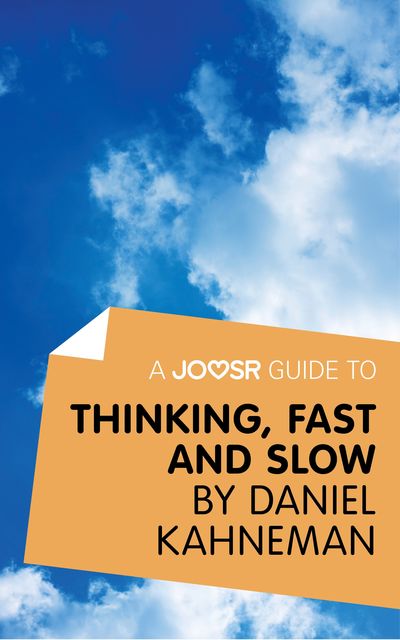A Joosr Guide to Thinking, Fast and Slow by Daniel Kahneman
Den här boken är inte tillgänglig just nu
21 trycksidor
- Utgivningsår
- 2015
Intryck
- Andrei Iordachedelade ett intryckför 4 år sedan👍Värt att läsa
- b1308125325delade ett intryckför 5 år sedan👍Värt att läsa
- Kirill Kucherenkovdelade ett intryckför 9 år sedan👎Hoppa över den här
Citat
- Alexander Sokolovhar citeratför 7 år sedanyour decision making and judgment always objective and practical?
The answer is a resounding “No!” In fact, our mind is conditioned to be optimistic even when it is not warranted. When undertaking a very risky endeavor, we may remain confident because of this misguided optimism. It clouds our rational ability to gauge risks, learn from past mistakes, or seek advice from people who have expertise in the area. This delusional “feel good” optimism keeps us from investing enough time in planning the endeavor. It gives us the false impression of having a great deal of control over a situation whilst, in fact, this may not at all be true. - b4047031363har citeratför 4 år sedanWe must force our System 2 into action to assess the actual facts and figures of our decisions, rather than letting our emotional responses take control. Only then will we overcome the influence of framing on our decisions.
- b4047031363har citeratför 4 år sedanYour System 1 thinking process is keeping accounts in your head—calculating your loss, gain, risk and reward, and attaching emotions to the various outcomes. Whether it is out of fear of regret or to give an impression of expertise or simply down to delusional optimism, our emotions tend to color our decisions significantly.
fb2epub
Dra och släpp dina filer
(upp till fem åt gången)


